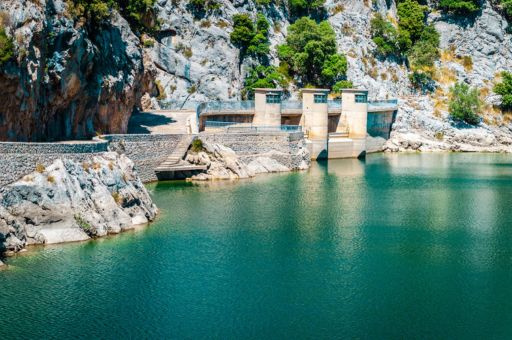A technological challenge led by the Directorate General for Water Resources and IB Digital, in collaboration with UIB, aims to improve groundwater management through advanced sensors
The Balearic Islands have launched a pioneering project to monitor the status of the archipelago’s aquifers in real time — a strategic resource that supplies 74% of the islands’ drinking water. This initiative, developed under the Smart Balearic Territory framework, is part of the actions carried out by the IoTIB Lab, the technology innovation laboratory promoted by IB Digital and the University of the Balearic Islands (UIB).
Led by the Directorate General for Water Resources, the project aims to evaluate the most effective technologies for measuring groundwater levels and quality, with particular focus on aquifer salinisation. The pilot has begun in five wells located in degraded groundwater masses: Son Reus and Pla de Campos (Mallorca), and Pla de Sant Antoni, Port Roig, and Cala Tarida (Ibiza).
TDB keeps you informed. Follow us on: Facebook, Twitter and Instagram
Balearic Islands Launch Pioneering Project to Monitor Aquifers in Real Time
“We are moving from a management model based on isolated, manual data to a living network that communicates with us hourly, daily,” said Joan Calafat, Director General for Water Resources. “This will allow us to better protect our aquifers, act quickly when problems arise, and design far more precise water policies. It’s a technical leap forward, but also a social one,” he noted.
An Invisible but Vital Resource
Monitoring aquifers has become especially urgent in the context of climate change, where reduced rainfall, tourist pressure, and extreme weather events demand far more precise and proactive water management. Data previously collected manually on a monthly or quarterly basis will now be gathered automatically and in real time, thanks to next-generation sensors.
“When water becomes too salty, it can’t be used for drinking or irrigation. Conductivity alerts us to this long before the water becomes unusable,” explained Celso García, professor at UIB and head of the project. “With this data, we can act in time and prevent greater damage,” he added.
Key Pilot for a Larger Investment: 250 Wells Across the Islands
This technological challenge serves as a preliminary step to ensure the success of a major investment: a €2.2 million project, funded by Next Generation EU funds, to install automated probes in 250 wells across the archipelago.
“What we want with this challenge is to ensure that the large-scale project backed by European funds will be a success,” emphasized IB Digital’s Managing Director, Miquel Cardona. “This pilot helps us avoid errors and technical surprises. It allows us to make practical recommendations so that the probes function correctly from day one. It’s applied technical knowledge to ensure public investments genuinely improve people’s lives.”
With an initial investment of €150,000, the IoTIB Lab challenge allows testing different sensing technologies under real conditions, evaluating their reliability, energy efficiency, data transmission capacity, and adaptability to the island environment.
Open Data for an Informed Public
One of the project’s most innovative aspects is its social dimension: the collected data will not only be available to technicians and administrations but also to citizens.
The Balearic Islands are developing digital platforms that will enable anyone to check the status of local aquifers, available water levels, and potential salinisation risks. This transparency will help citizens understand public decisions on water restrictions and planning.
“We want a public administration that works with real data, anticipates problems, and uses technology to genuinely improve people’s lives,” stressed Cardona. “But we also want decisions to be understandable, shareable, and validated by the public. That’s the future of public service: more efficient, more human, and more connected,” he added.
Applied Science for a Sustainable Future
The initiative also highlights the importance of fostering local innovation and retaining strategic knowledge within the archipelago. The involvement of the University of the Balearic Islands ensures that a strong scientific and educational foundation supports technological development.
“The science we do here, using real technology under real conditions, is the best way to ensure knowledge stays in the Balearic Islands,” said García. “We are training the next generation of water experts for the archipelago while solving a concrete problem that directly affects people’s lives. It’s research with impact and purpose,” he emphasized.
With this project, the Balearic Islands are taking a decisive step toward smarter, more transparent, and more resilient water management — fully aligned with European sustainability and climate adaptation goals.
